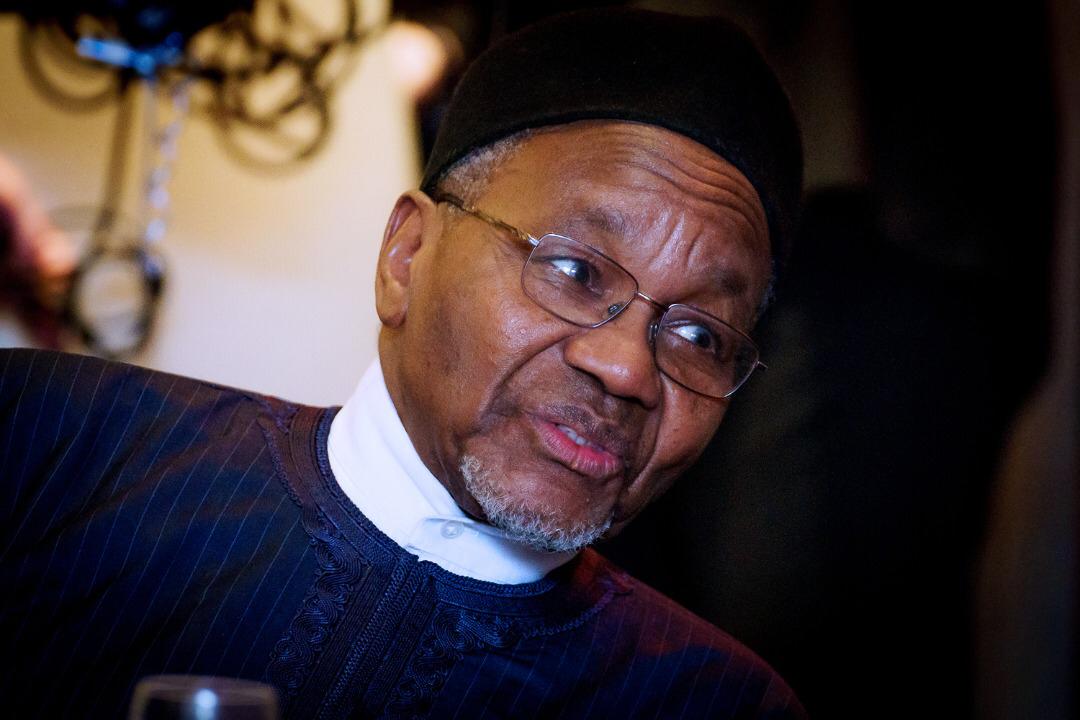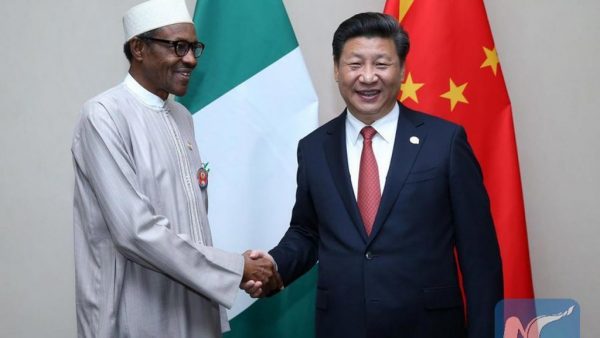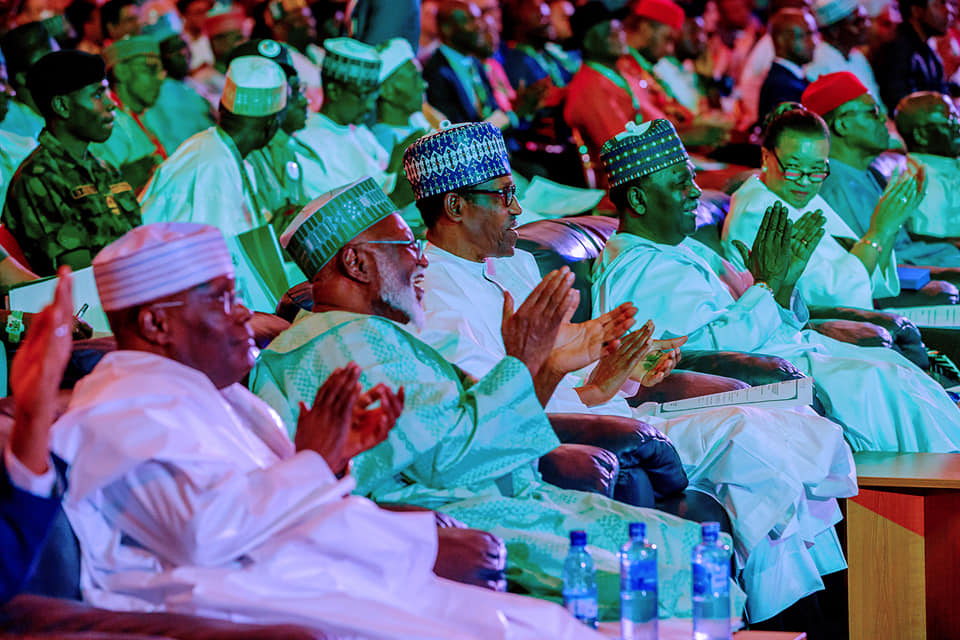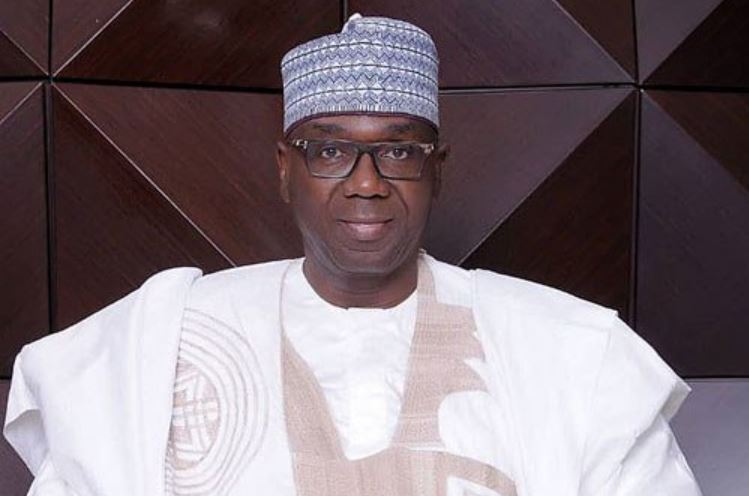BY GBENGA ADEBOYE
In a recent interview, Mamman Daura, a northern leader and nephew of President Muhammadu Buhari, stated: “Rotation has been done once, twice and three times; it is important that this nation should be united as one. The most qualified, competent should be elected and not someone who comes from a particular zone”.
This has set the political firmament crackling like a harmattan fire in the wild, with eminent Nigerians and southern social-political groups joining the fray and practically descending on Mamman Daura and his opinion. So effusive has been the flurry of reactions that Buhari’s spokesman, Garba Shehu, had to issue a statement explaining that “the views expressed were personal to him (Mamman Daura) and did not, in any way, reflect that of either the President or his administration”.
Instructively, only a few commentators, such as the popular columnist, Simon Kolawole, and a political analyst, Ndubuisi Nwigwe, have done a fine job on the subject, providing balanced, insightful, unemotional, and clear-headed analyses.
Advertisement
I have not seen anything anti-Nigerian President of southern extraction in what Mamman Daura said. Rather than detracting from the south’s quest for the presidency in 2023, Daura’s statement actually catalyses it. For instance, when Mamman Daura says, “The most qualified, competent should be elected”, I should think he has moved the contest to a familiar territory where the south can actually prevail.
Again, I don’t think he has said that zoning and competence are mutually exclusive. At worst, he has only said in a different way what many of us have been clamouring for. If I have to paraphrase the elder statesman, Nigeria has not been led by its best over the years because we have paid more attention to the zoning than the quality of people produced by the zones to lead Nigeria.
One is, therefore, persuaded to think that the floodgate of reactions is more about the messenger, not the message. And this is where many got it wrong. And to my mind, two factors are responsible for this: perception/assumption and fear/anxiety. The first has to do with the reported closeness of Mamman Daura to President Buhari and the immense influence he is alleged to wield in the administration. In fact, the Niger Delta Leader, Chief Edwin Clark referred to Mamman Duara as “the leader of the Villa Cabal”. This is an impression he equally dismissed in the contentious interview.
Advertisement
However, with such preconception, whether true or false, comes the higher risk of not only misinterpreting Mamman Daura’s views but also ascribing whatever meaning they made of it to Buhari himself. Ironically, during his 80th birthday, tributes from credible persons even from the south show that contrary to what many think, Mamman Daura is quite cosmopolitan, pan Nigerian, and detribalised.
Meanwhile, the provisions of the 1999 Constitution, which requires that a winner must poll at least 25 per cent of votes cast in a minimum of 24 states of the federation, and the history of Nigerian elections do not support the view and anxiety that any one person part of Nigeria can determine who becomes the President of Nigeria. It is also not true that the entire north will vote out a southern candidate because they have a higher population (about 52 per cent) of registered voters.
Those who are quick to point at the fate of former President Goodluck Jonathan in 2015 as justification for this presupposition as the absolute fate of a southern candidate come 2023 miss the point. It will not be fair to the north to use Jonathan’s defeat to profile a Mamman Daura or an entire region without considering the underlying factors that precipitated that historic event. We must put the whole picture in perspective.
For instance, against the backdrop of the north’s belief that one of their own should fly Peoples Democratic Party (PDP) ticket in 2011 to compensate for what they viewed as north’s turn truncated by the unfortunate death of former president Musa Yar’Adua, it is understood that a gentleman understanding was brokered such that a northerner would succeed Jonathan in 2015. Although many northerners were still unhappy with the arrangement, Jonathan won that 2011 election, defeating Buhari in seven northern states, namely Adamawa, Benue, Kwara, Kogi, Niger, Nasarawa, and Plateau.
Advertisement
Unfortunately, Jonathan, prodded by some selfish PDP leaders, went for another term in 2015 contrary to that gentleman agreement. And in doing so, Jonathan and PDP got a lot of things wrong. Internal disagreements were mishandled, leading to the breakaway of five sitting governors, their supporters, and other prominent party leaders. He did little to consolidate his hold on the Middle Belt, South West and South East. He made palpable errors in the heads of security agencies and his choice of party coordinators for some geopolitical zones. The South East coordinated by Peter Obi is a clear example.
For instance, whereas Buhari beat Jonathan by 2,571,759 votes, Jonathan’s votes just in South East dropped from 5,090,108 in 2011 to 2,464,906 in 2015. That was a whopping 2,625,202 votes. If the region voted better or even the same way as in 2011, Jonathan would have needed only 500 more votes to defeat Buhari. That could have been a “moi moi” matter if the South West had voted slightly the way they did in 2011. But that was not to be as he had lost the support and confidence of Bola Tinubu and Olusegun Obasanjo. Jonathan’s administration had earlier half-heartedly arraigned Bola Tinubu at the Code of Conduct Tribunal without going the whole length to crush as nuances of power demands and as an Olusegun Obasanjo or Buhari could have done. PDP and Jonathan also triggered protest votes in some core PDP states as we saw in Benue and Plateau where Governors Gabriel Suswan and Jonah Jang were allowed to impose their cronies/relatives as PDP governorship candidates at the party’s expense. Yet, despite all these grave errors, Jonathan won Buhari, even if marginally, in Adamawa, Nasarawa, Plateau, and Taraba.
In this same country, the south overwhelmingly voted Yar’Adua in 2007. The North voted for Obasanjo against Buhari in 2003. In 1993, Chief MKO Abiola trounced Bashir Tofa in Tofa’s home. In the 1979 election, Shehu Shagari was only able to win five of the 10 northern states at the time. The Peoples Redemption Party (PRP) took Kano and Kaduna States, while the Great Nigeria Peoples Party (GNPP) won in Gongola and Borno. Nnamdi Azikiwe’s Nigerian Peoples Party (NPP) took Plateau State in the North. Importantly, Shagari, a northerner, won courtesy of the extra votes he got from Cross River and Rivers; and this was despite Azikiwe and Obafemi Awolowo presence on the ballot.
Currently, among the southerners, the Igbo have been more vocal in laying claims to the presidency in 2023, and rightly so. In all honesty, they have a strong case for the sake of equity. In 1999 the national opinion favoured the South West given MKO Abiola’s fate and it became a two-horse race between Olu Falae and Obasanjo. In 2007, equity demanded that the north produced the president. In 2011, the South-South had a strong case in Jonathan, being the hub of the nation’s wealth, which had suffered serious neglect and environmental degradation. In 2015, national opinion favoured a north against an incumbent. Today, a President of South-East extraction is gaining momentum. Equity demands that both PDP and APC field South East candidates aw we saw in 1999 between Obasanjo and Olu Falae and in 2007 between Yar’Adua and Buhari.
Advertisement
However, as above analysis shows, what wins the presidential election in Nigeria is strategising through suasion, alliances, negotiation, bridge-building, and bringing every interest on the table and accommodating them as much as possible in the spirit of give and take. It is not making the wrong assumptions or needless hoopla about Mamman Daura or the north or Buhari. They can actually be catalysts, not obstacles to a southern president come 2023, depending on how the South and the Igbo play their politics.
Advertisement
Views expressed by contributors are strictly personal and not of TheCable.






